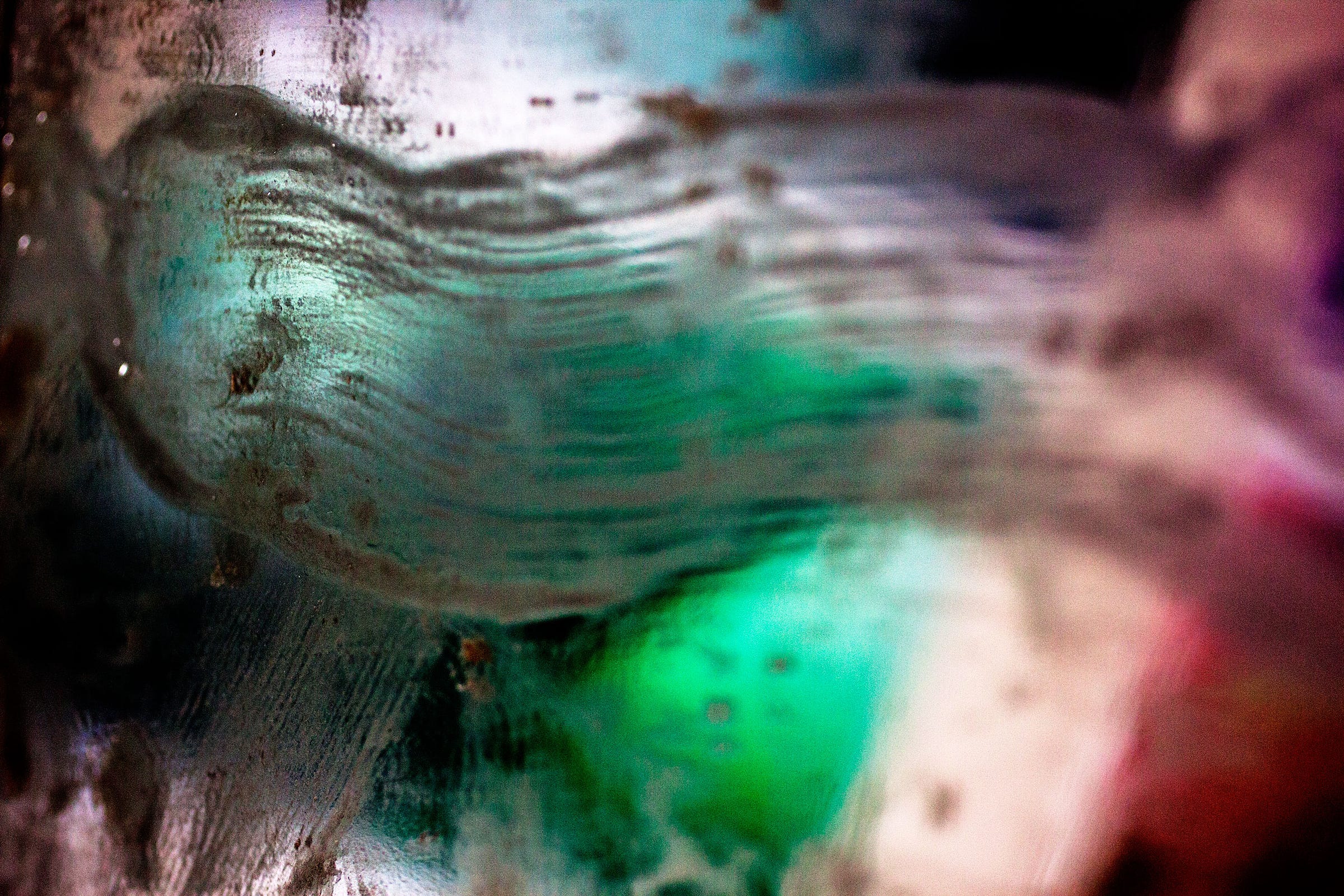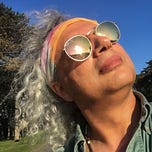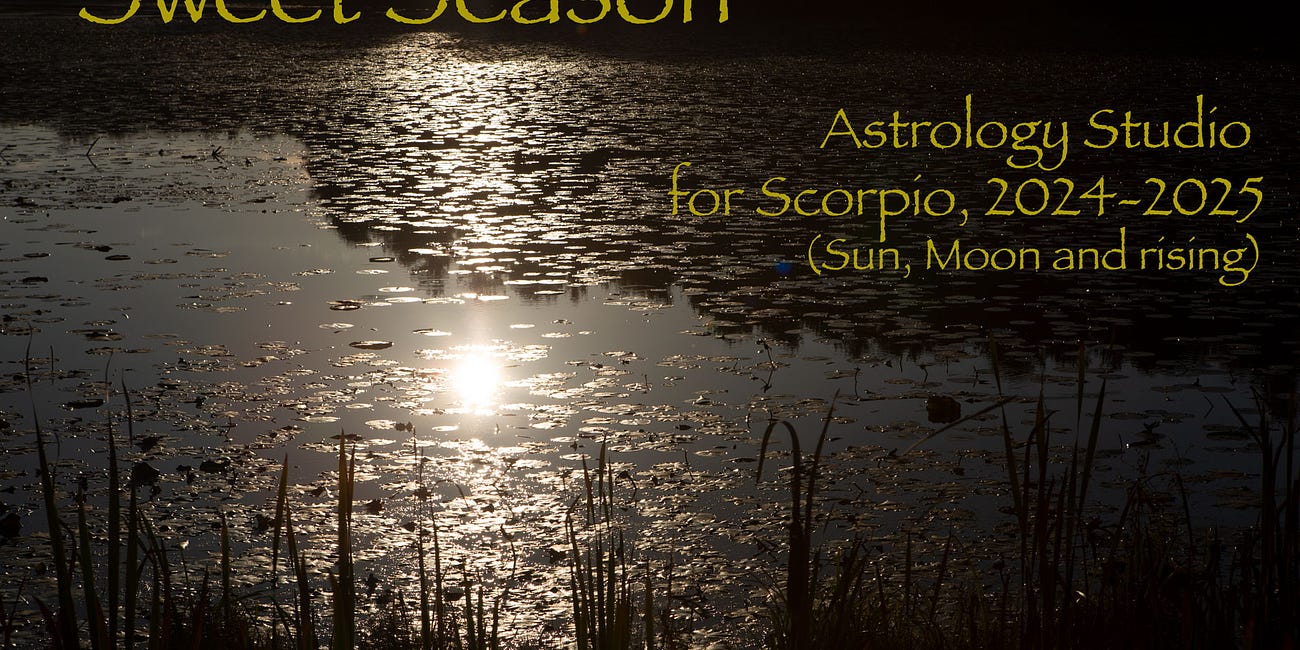
Note, I have opened up today’s earlier post — my reading of the eclipse chart.
Dear Friend of Planet Waves:
Today’s edition of Journey Without Distance addresses a topic rarely discussed: sex and A Course in Miracles. It’s a topic that the published edition of the Course never mentions. (There is some discussion in what is called the unrevised manuscript, mostly associated with one member of the channeling team being gay, highly controversial in the mid-1960s.)
I’ve been wondering all day why this program was so difficult to do. I think it’s because sex is frowned upon by nearly all modes of religion and spirituality. New Age religion only pretends to address it with the occasional book on pseudo-tantra.
Sin and Guilt are Big Business
Only Hindu and certain classical forms of Buddhist tantra approach the subject directly, and the ideas are generally not for public consumption. It is fair to say that sexuality has long presented problems for people — especially under dogmatic religious control, which has turned sin and guilt into big business — and that matters have descended to a point lower than ever.
So I am proceeding with caution.
I may give it another try next week. Your feedback will be helpful.
Last week’s edition was a discussion of Tibetan Buddhist and tantric master Chögyam Trungpa and The Course.
The Topic is Easily Avoided or Dismissed
It’s easy to have the discussion of sexuality in any context if you decide that it’s not that important. I take a different view, honoring the vitality and importance of reaching for a true understanding of sexuality; so that makes things slightly more complex.
I’ve just finished the recording and was noticing the challenges I was having finding my words and ideas.
Note that sex and sexuality are almost never discussed, in public or in private. What we talk about is attack, jealousy, trauma, guilt, sickness and dysfunction. But sex? That’s too embarrassing. It’s easier to stick to gossip, which translates to perceived sickness.
The central teaching of A Course in Miracles is clear: there is no sin. Since most of sexuality is discussed in the context of sin, we can keep the rest — once we figure out what it is.
A Course in Miracles and the ‘Special Relationship’
So, what’s going on with sex and the supposedly all-embracing Course in Miracles? Its teachings emphasize the equality of all relationships, and the fact that sin and guilt — so common to the perception of sexuality — are illusions. This discussion is based on The Illusion and the Reality of Love, which appears on page 313 of old editions.
Here are three quotations from that section:
The symbols of hate against the symbols of love play out a conflict that does not exist. For symbols stand for something else, and the symbol of love is without meaning if love is everything. You will go through this last undoing quite unharmed, and will at last emerge as yourself. (ACIM, T-16.IV.2:1-3)
and
The special love relationship is an attempt to limit the destructive effects of hate by finding a haven in the storm of guilt. It makes no attempt to rise above the storm, into the sunlight. On the contrary, it emphasizes the guilt outside the haven by attempting to build barricades against it, and keep within them. The special love relationship is not perceived as a value in itself, but as a place of safety from which hatred is split off and kept apart. The special love partner is acceptable only as long as he serves this purpose. (ACIM, T-16.IV.3:1-5)
and
Your task is not to seek for love, but merely to seek and find all of the barriers within yourself that you have built against it. It is not necessary to seek for what is true, but it is necessary to seek for what is false. Every illusion is one of fear, whatever form it takes. And the attempt to escape from one illusion into another must fail. If you seek love outside yourself you can be certain that you perceive hatred within, and are afraid of it. Yet peace will never come from the illusion of love, but only from its reality. (ACIM, T-16.IV.6:1-6)
and
Love is not an illusion. It is a fact. Where disillusionment is possible, there was not love but hate. For hate is an illusion, and what can change was never love. It is sure that those who select certain ones as partners in any aspect of living, and use them for any purpose which they would not share with others, are trying to live with guilt rather than die of it. This is the choice they see. And love, to them, is only an escape from death. They seek it desperately, but not in the peace in which it would gladly come quietly to them. And when they find the fear of death is still upon them, the love relationship loses the illusion that it is what it is not. (ACIM, T-16.IV.4:1-9)
I have said many times that I don’t think A Course in Miracles would be suitable for me were I not a student on the tantric path. There are too many questions that specifically concern sexuality not to have some actual information about it, and guidance how to proceed with exploration.
Tantra is unique in that recognizes the essentially spiritual nature of sexuality.
Because sexuality is at the core of worldly existence — it is the gateway into time, and the body/mind’s creative furnace within time — it’s my position that understanding its true nature is necessary for spiritual growth.
Other teachers obviously think differently, though this is an easy topic to avoid on the grounds of “appropriateness” or how allegedly “unspiritual” it is. Those ideas are the source of many problems. From religion to feminism to mysticism, sexuality is usually swept into the dustbin of the 12th house. There must be a better way.
Here are some additional materials:
Sex and A Course in Miracles by Sean Reagan
Jealousy and the Abyss by William Pennell Rock
The Illusion and the Reality of Love from A Course in Miracles
















Share this post